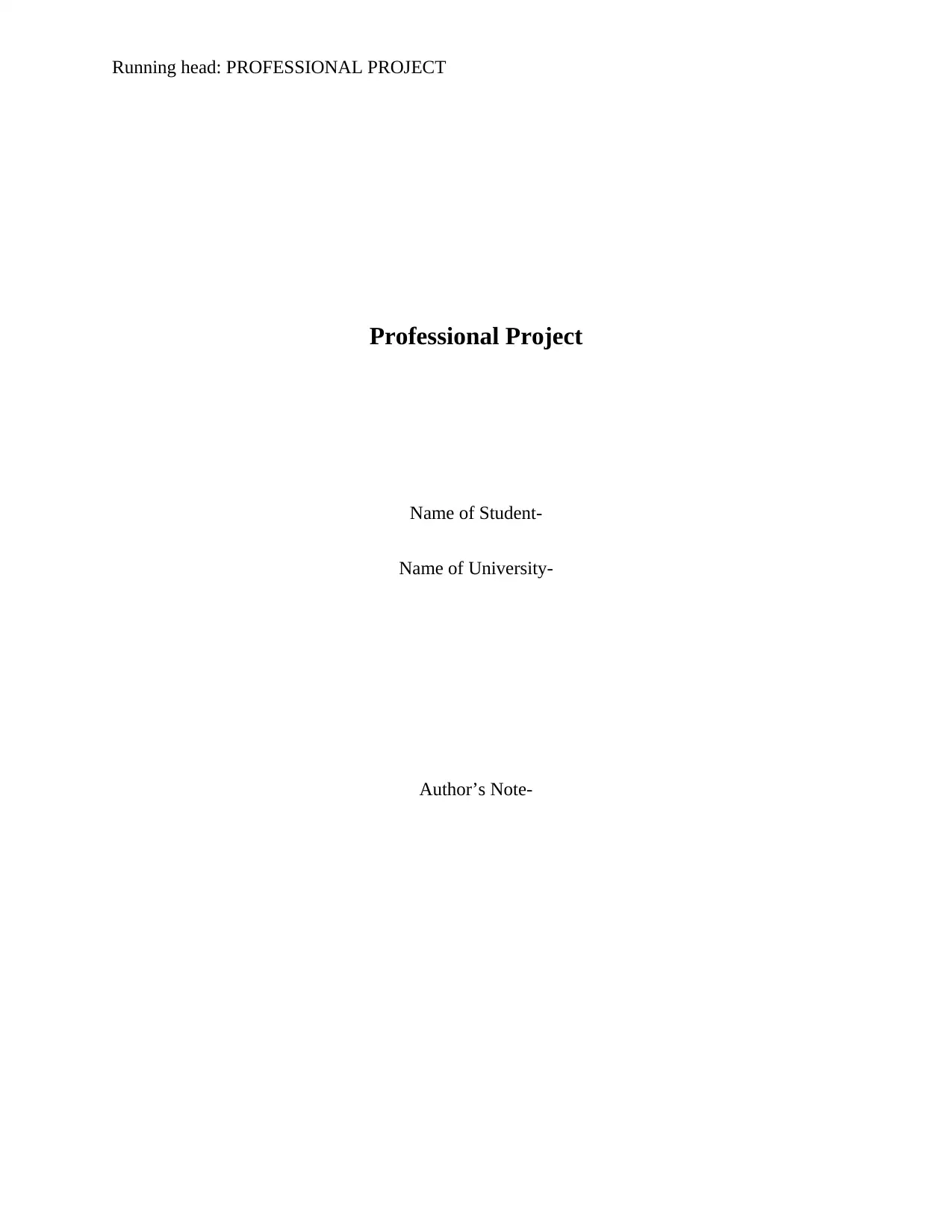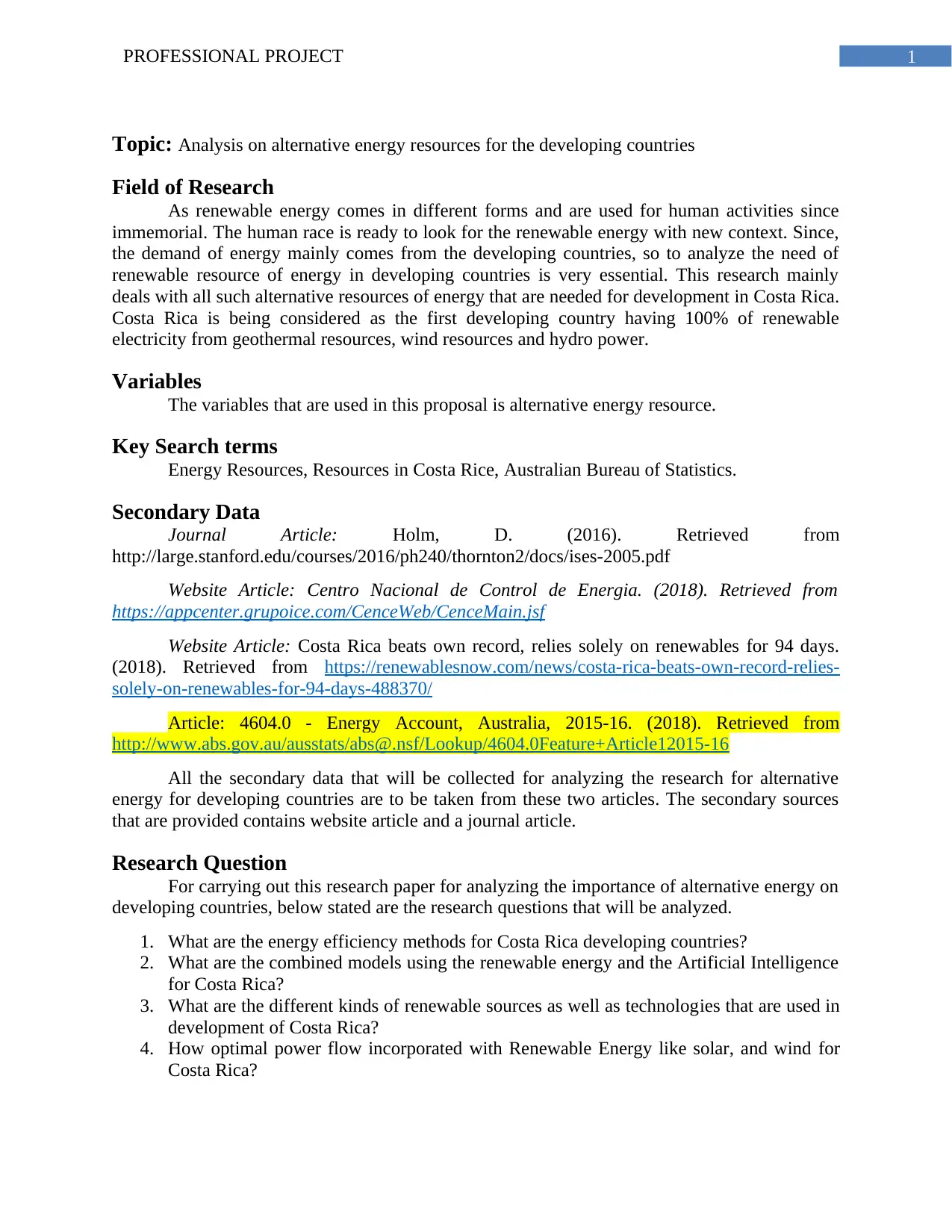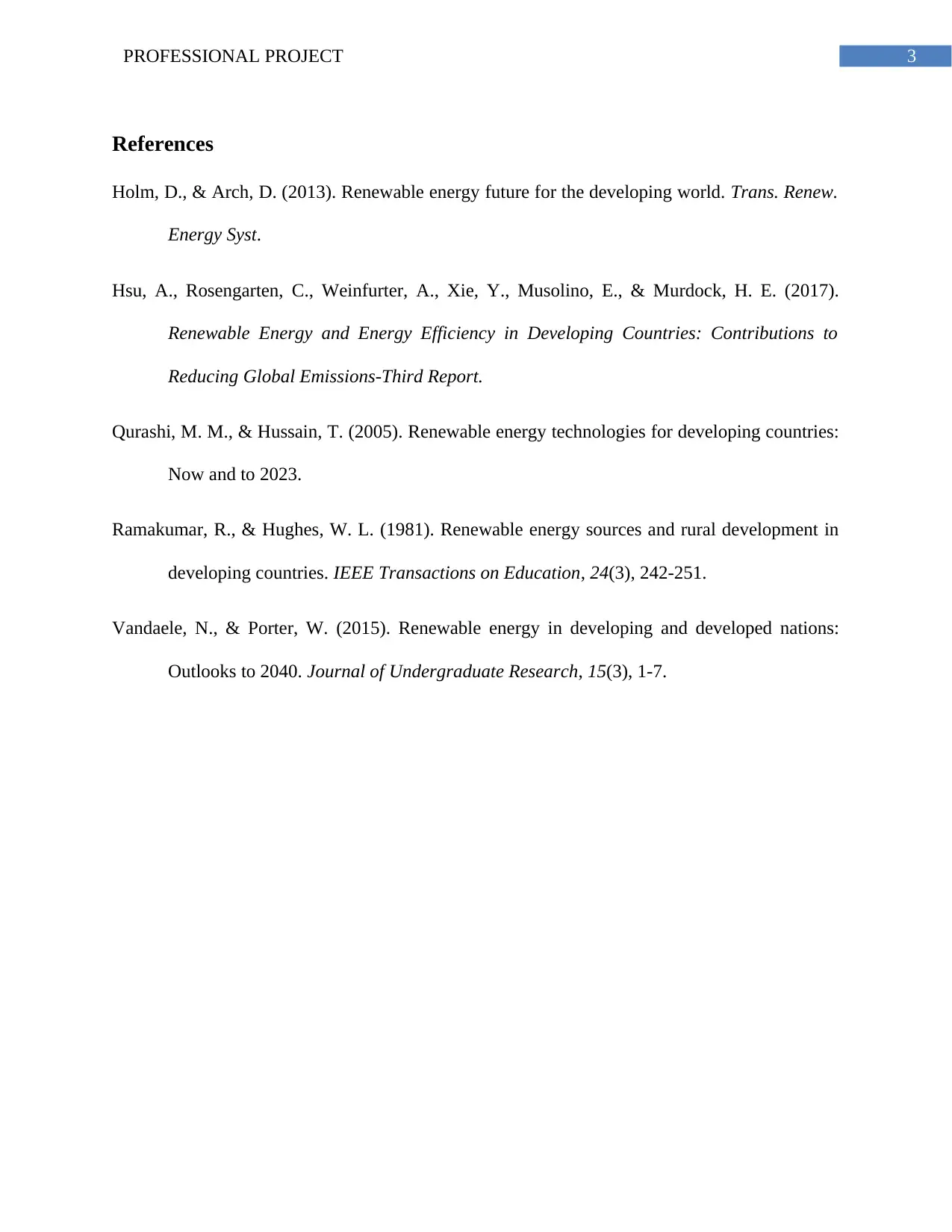Professional Project: Alternative Energy Resources in Costa Rica
VerifiedAdded on 2023/06/10
|4
|635
|289
Project
AI Summary
This professional project analyzes alternative energy resources, specifically focusing on the case of Costa Rica, a developing country that sources a significant portion of its electricity from renewable sources. The research explores various aspects, including energy efficiency methods, the integration of renewable energy with Artificial Intelligence, different renewable sources and technologies used, and the incorporation of optimal power flow with renewable energy like solar and wind. The project utilizes secondary data from journal articles and websites to address these research questions. The study aims to understand the strategies and technologies that have enabled Costa Rica to achieve a high percentage of renewable electricity and to provide insights applicable to other developing nations facing environmental and economic challenges. References from scholarly articles are provided to support the analysis. This project, contributed by a student, is available on Desklib, a platform offering AI-powered study tools for students.
1 out of 4








![[object Object]](/_next/static/media/star-bottom.7253800d.svg)